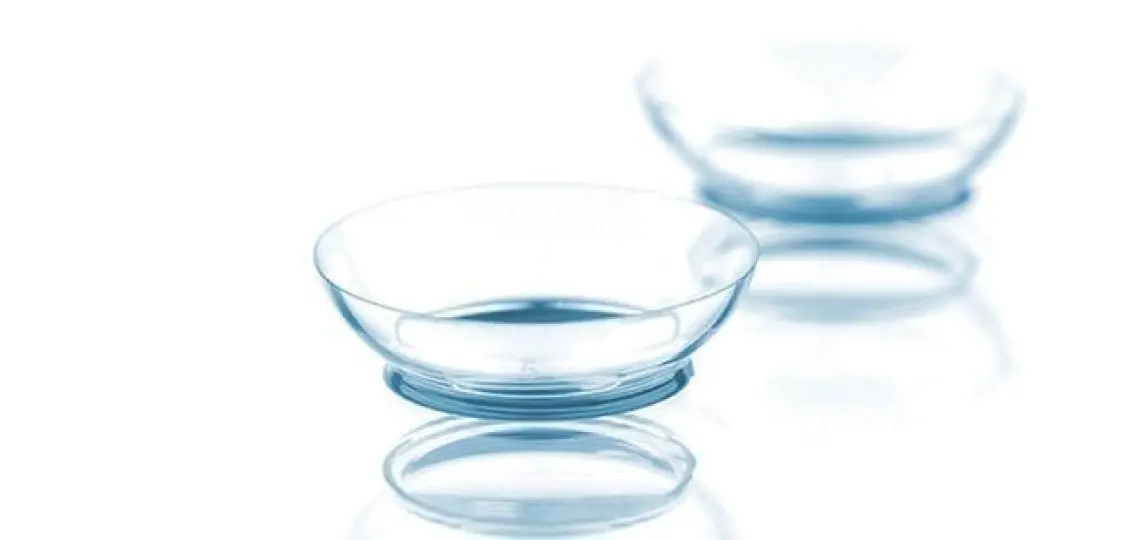Ryan Parris started wearing contact lenses at just 10 years old. He was an active athlete, and keeping tabs on his sports goggles was cumbersome.
“I worried a little bit about his lens care in the beginning,” says Jenny Parris, Ryan’s mom. “I am sure he would say I nagged him, but my biggest concern was if he washed his hands properly before putting his contacts in or taking them out.”

Her worries eased with time, however. “I knew he was using his cleaning solution, and his eyes were healthy except for some minor irritation now and then,” she recalls.
Fast forward to college. In November 2015, Ryan was a freshman playing football for the University of Alabama when he suddenly experienced severe pain and irritation in his left eye. His condition quickly worsened, and a doctor diagnosed him with acanthamoeba keratitis (AK). The rare and debilitating condition is caused by microscopic amoeba found in water—oceans, lakes, swimming pools, even tap water—that infect the cornea of the eye.
Ryan contracted the disease by rinsing his lenses under the bathroom faucet when he ran out of solution.
In the United States, most people diagnosed with AK are contact lens wearers. When the parasite gets into the eye, it slides under the lens and feeds on bacteria on the lens or cornea. The lens can trap the organism on the eye, reducing the opportunity to excrete it through tears. The parasite then embeds itself into the corneal tissue and begins to reproduce, often at alarmingly fast rates.
AK is rare, but it’s not a minor concern. Unlike more typical infections, it can last for weeks to months, says Dr. Janet Lee, a board-certified ophthalmologist with the Wheaton Eye Clinic in Wheaton, Illinois. “In the most severe cases, this infection can result in permanent vision loss.”
Doctors do not know why some people contract AK and others do not. The common denominator is exposure through water sources while wearing lenses, usually through swimming or showering, rinsing or storing lenses in tap water, or even handling lenses with wet hands. Poor contact lens hygiene, such as failing to disinfect lenses properly, causing bacteria to accumulate, or failing to change the case regularly, also increase the risk of infection.
By the teen years, most parents have gotten used to handing over hygiene responsibilities like tooth brushing and showering. But teens may still need parent oversight when it comes to lens care. A recent study by the Centers for Disease Control found that 85 percent of teens who wear contact lenses are putting themselves at risk for infection with one or more poor hygiene habits.
4 Ways to Prevent Infections:
1. Attend yearly eye doctor appointments.
“We encourage parents to make sure their kids and teens go to yearly eye doctor appointments,” says Dr. Jennifer Cope, medical officer at the CDC.
2. Remind them about proper care.
Parents need to be vigilant to instill good habits. Cope adds, “They should encourage their kids and teens to change their lenses and cases regularly, avoid sleeping or napping in their lenses, and avoid showering or swimming in their lenses.”
3. Consider daily lenses.
If you are concerned that your child may not take lens care seriously, consider using daily lenses. This eliminates the cleaning step and simplifies the care process.
4. Make your teen aware of the consequences.
There are currently no medications specifically approved for the treatment of AK. Some doctors have found success with “off-script” pharmaceuticals approved for other conditions. Most doctors use a combination of various antiseptic drops proven to kill the amoebas and create an inhospitable environment—as if shocking a pool with a large amount of chlorine. In the beginning, drops are used hourly, even through the night, which can be an exhausting experience.
Ryan has a scar directly over his pupil that impedes his vision. He will need additional surgery to restore his sight completely.

His mom’s last words of advice: “Take contact lens care seriously, and never use any excuse to justify using tap water as a replacement for contact solution. There is too much risk involved.”




